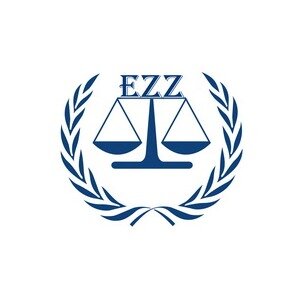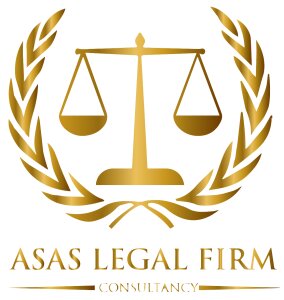Best Conveyancing Lawyers in Cairo
Share your needs with us, get contacted by law firms.
Free. Takes 2 min.
Free Guide to Hiring a Real Estate Lawyer
List of the best lawyers in Cairo, Egypt
About Conveyancing Law in Cairo, Egypt
Conveyancing in Cairo, Egypt refers to the legal process of transferring ownership of real estate or property from one person or entity to another. This process is vital when buying, selling, or inheriting property and involves a series of checks, clearances, legal documentation, and registration steps. Egyptian property law is governed by a combination of local statutes, customary practices, and regulations set by authorities in Cairo. Understanding the specific legal requirements is crucial to ensure that property transactions are valid, secure, and recognized by the Egyptian authorities.
Why You May Need a Lawyer
Hiring a lawyer for conveyancing in Cairo is highly recommended, as property transactions often involve complex legal frameworks, significant financial investments, and potential disputes. Common situations where legal help is needed include:
- Ensuring the legitimacy of property ownership and verifying the title deed
- Drafting or reviewing contracts to safeguard your interests
- Facilitating negotiations between buyers, sellers, and banks
- Resolving disputes over boundaries or ownership
- Handling paperwork for registration and payment of taxes or fees
- Assisting expatriates or foreign investors to comply with local laws
- Managing inheritance transfers or gifting of property
- Advising on land use regulations and zoning requirements
Local Laws Overview
Conveyancing in Cairo is predominantly regulated by Egypt’s Civil Code and various property registration laws. Key points to consider include:
- Title Deeds: Only properties with an official registered title deed can be legally transferred. Unregistered properties pose significant risk.
- Property Registration: The real estate transaction must be registered at the competent Real Estate Registration Office in Cairo for the sale to be legally binding.
- Foreign Ownership: Limitations exist on the types and locations of property that foreigners can purchase, especially regarding agricultural and certain urban lands.
- Inheritance Laws: Islamic Sharia law may apply to inheritance cases, influencing how property is distributed among heirs.
- Taxation and Fees: Various taxes and fees are applicable, such as transfer tax, stamp duties, and registration fees, which must be calculated and paid.
- Due Diligence: Thorough due diligence on legal status, encumbrances, building permits, and outstanding utility bills is a critical step before proceeding with a transaction.
Frequently Asked Questions
What is the first step in buying property in Cairo?
The first step is to verify that the property has a clear and official title deed, which can be transferred and registered in your name. You should also ensure there are no outstanding debts or legal issues attached to the property.
Is it possible to buy property in Cairo if I am not an Egyptian national?
Yes, foreigners can own certain types of property in Egypt, but there are restrictions on land type, location, and maximum numbers of properties. Legal advice is crucial for foreign investors to ensure compliance with these rules.
Do I need to register property after buying it?
Yes, registration at the Real Estate Registration Office is mandatory for the transaction to be legally recognized and enforceable in Egypt. Unregistered sales are not protected by law.
What documents are needed for conveyancing in Cairo?
Typically required documents include the title deed, national ID or passport, a recent utility bill, the sales contract, and proof of payment of taxes and fees.
Are there taxes or fees I must pay when buying or selling property?
Yes, property transactions in Cairo incur transfer taxes, stamp duties, agent commissions, and administrative fees. Your lawyer can provide estimates based on the transaction value and property type.
How long does the conveyancing process typically take in Cairo?
The process can range from several weeks to several months depending on the completeness of documentation, presence of legal issues, and workload at the registration office.
What legal checks should I perform before buying a property?
You must verify the authenticity of the title deed, check for any mortgages, liens or claims, confirm the seller’s legal right to sell, and ensure there are no outstanding debts or disputes affecting the property.
Can properties in Cairo be inherited or gifted?
Yes, inheritance and gifting of property are recognized, but they must be followed and registered according to Egyptian law and, where applicable, Islamic inheritance principles.
What happens if there is a dispute during the conveyancing process?
Disputes can arise concerning boundaries, payment, or title validity. Such conflicts are usually resolved through negotiation, mediation, or formal legal proceedings in Egyptian courts.
Why should I hire a conveyancing lawyer instead of handling the process myself?
A specialized lawyer can help navigate complex laws, handle paperwork accurately, protect your interests, conduct due diligence, and avoid pitfalls that could result in financial or legal loss.
Additional Resources
If you need more information or assistance with conveyancing in Cairo, the following resources can help:
- Real Estate Registration and Documentation Offices (الشهر العقاري والتوثيق): Handles property registration and related legal matters.
- Egyptian Bar Association (نقابة المحامين المصريين): Can help you locate qualified legal professionals specializing in property law.
- Egyptian Ministry of Justice (وزارة العدل): Provides official information on property laws, inheritance rules, and legal rights.
- Local Real Estate Agents: Many agents work with lawyers familiar with Cairo property law and can offer practical guidance.
Next Steps
If you require legal assistance with conveyancing in Cairo, consider the following steps:
- Gather all available documentation related to the property, including title deeds, plans, and identification papers.
- Contact a licensed conveyancing lawyer or law firm with experience handling property transactions in Egypt.
- Set up an initial consultation to assess your needs, identify potential legal requirements, and discuss costs.
- Follow your lawyer’s advice on next steps, such as conducting due diligence checks, drafting contracts, and submitting documents for registration.
- Stay informed and ask questions throughout the process so you understand your rights and obligations at every stage.
Taking these steps will help protect your investment and facilitate a smooth and lawful property transaction in Cairo, Egypt.
Lawzana helps you find the best lawyers and law firms in Cairo through a curated and pre-screened list of qualified legal professionals. Our platform offers rankings and detailed profiles of attorneys and law firms, allowing you to compare based on practice areas, including Conveyancing, experience, and client feedback.
Each profile includes a description of the firm's areas of practice, client reviews, team members and partners, year of establishment, spoken languages, office locations, contact information, social media presence, and any published articles or resources. Most firms on our platform speak English and are experienced in both local and international legal matters.
Get a quote from top-rated law firms in Cairo, Egypt — quickly, securely, and without unnecessary hassle.
Disclaimer:
The information provided on this page is for general informational purposes only and does not constitute legal advice. While we strive to ensure the accuracy and relevance of the content, legal information may change over time, and interpretations of the law can vary. You should always consult with a qualified legal professional for advice specific to your situation.
We disclaim all liability for actions taken or not taken based on the content of this page. If you believe any information is incorrect or outdated, please contact us, and we will review and update it where appropriate.
















